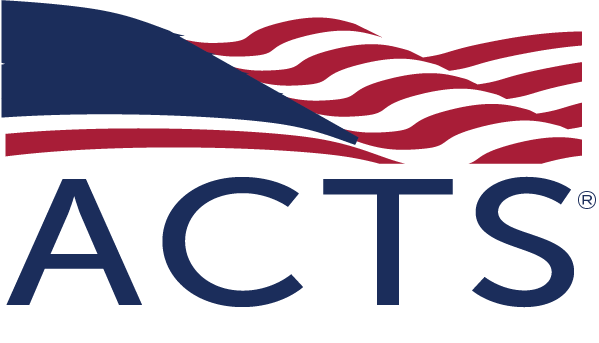The work that we do is largely lived out in a community. In this work, God propels us toward others; as school leaders, we are immediately in the mix of parents, educators, staff, and students. We become part of a broader story He is writing not only in our lives but also in the lives of others. We are invited into a diverse family under the “roof” of one school. Even with all of that togetherness, why is it that our leadership role is often a lonely road? This question was very recently posed to me by a group of principals from across the world. One principal wanted the group to wrestle with the question, “Does school leadership HAVE to be lonely?” I think the answer is that it doesn’t have to be, and it shouldn’t be. One way to buck up against that sentiment is to grow your circle. That is what Converge will absolutely do—grow your circle of companions who are on the same journey.
We Need Companions
One of the basic needs God gave human beings was the need for camaraderie. God created us for relationships. He neither expects nor wants us to live the Christian life all by ourselves—and let’s face it, our roles as Christian leaders take quite a bit of our lives. We need others (and others need us) to lift us when we fall, encourage us when we fail, and help us when we are frozen. Ecclesiastes 4:9–12 (NKJV) says:
“Two are better than one, because they have a good reward for their labor; for if they fall, the one will lift up his companion. But woe to the one who falls and does not have another to lift him up! Again, if two lie together, they keep warm. But how can one be warm alone? And while a man may prevail against the one, the two will withstand him; and a threefold cord is not quickly broken.”
Today’s world gives us a message counter to the invitation into community. Individualism, isolation, efficiency, and pride are all common temptations that seek to put us in competition with one another. As Christian leaders, we (should) all want the same thing. Our schools and organizations exist so that children will know God and know His Word, broadening the Kingdom on earth. At Converge, you will begin to deepen relationships with one another and widen your circle of true friends (in the Gospel). By developing openness and transparency in Christ, we become known, seen, and understood by others.
Leadership Example: The Life of Paul
Looking at the life of Paul, we see how important Paul’s friends were to him as he traveled and shared the Gospel. At the end of Romans 16, Paul reminds us of the importance of the relationships he had as he lived on mission. These relationships were cultivated on the road and built over time. His curiosity and intensity led him to truly get to know others and, in turn, for them to know him. It’s easy to see how invested they were in each other as he names his friends and specifically thanks and prays for each. He prayed diligently for them long after they parted from each other. These friendships were not in competition with the work Paul was tasked with—they were concurrent with it. His affection for those journeying along with him is instructive as we seek to be known among those we serve. His attention to others illustrates how to honor one another as companions and create a culture that reflects Christ.
Paul may have never seen these friends again. Unlike leaders today who have the technological ability to talk with and see companions at the click of a few buttons, Paul carried them only in his heart. The new connections and reconnections that you make at Converge, especially for new leaders, become most meaningful when you continue the relationship beyond the conference. Sharing yourself—both joys and worries—with likeminded or, maybe more importantly, with non-likeminded leaders, you will wrestle with ideas that will help you grow. That’s a big win for you and for Christian education.
Cultivate Gratitude in Community
Paul was shaped first by God and then by others. He also knew that these friends were gifts, and his spirit of gratitude for these gifts is very clear in Romans. It’s found in the individual affirmation of people, as well as how their presence, work, and commitment benefited the church as a whole (Rom. 16:4). He sought to truly see those he had been gifted to serve alongside and displayed thankfulness in his heart and words. Paul’s posture of gratitude connected him to others in an acute way.
Building a network of friends does not just happen—it is cultivated. The place to start that cultivation, if you haven’t already, is at Converge. Paul’s example of seeing, affirming, and expressing his need for others as fellow workers is an example for us. Spend some time reading through the words of Romans 16. The truest expression of the gospel is the way in which we live with each other, and the opportunity that we have to do that as Christian school leaders is ours to grab. What a gift to have companions along the way. Personally, it has been a wonderful group of leaders who have been the greatest impact on my practice in the journey of leadership.
A few things I’ve learned from my friends in my leadership journey are:
- Transparency can build boldness. Listening to and learning from other leaders is a key to building personal leadership skills and building knowledge.
- Innovative and creative thinking can come from anywhere. It is not always the most experienced leaders who have the best ideas. Again, listen well!
- We don’t know it all, but no one else does either. There is great relief in that. Listening to people who have different perspectives is a great way to open your mind to new ideas.
- People like to share. You will find that you don’t have to reinvent the wheel, because someone is bound to have had the experience, created that form, or answered those hard questions before.
- Collective leadership is the future of Christian education. Our individual silos will have trouble standing if we don’t collaborate. That school down the street is NOT the enemy. In the end, our schools aim at very similar targets—we want children to know and love Jesus, love others well, and understand the truth of God’s Word.
- Connecting on all levels—emotional, spiritual, and professional—brings a new, much higher capacity for personal leadership and professional growth. It should be the new surge and new wave of meaningful relationships and innovation in leadership and education.
Converge to Connect
Remember, the goal of Converge 2025 is to bring together dense networks of Christian leaders and schools to learn from and with one another. I dare you to walk away from our time together at Converge and not have built a new density of companions. Leadership loves company. As you have honest conversations with other school leaders, you will see that the breadth and the depth of God’s work beyond your own school’s walls is refreshing, renewing, and exciting. You will be reminded of the corporate work of the body of Christ and rejoice that you have been called into good, hard work for the Kingdom.
I can’t wait for Converge in February 2025!















































